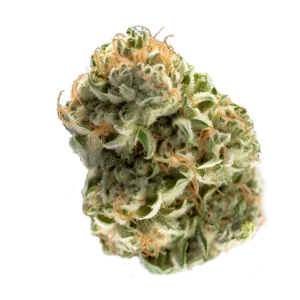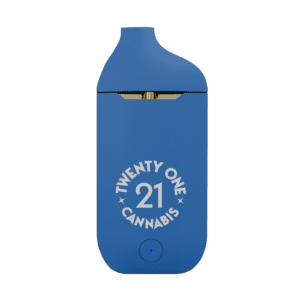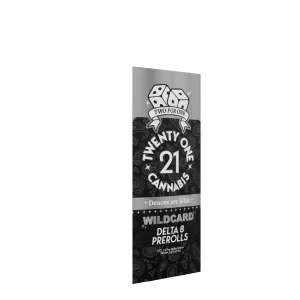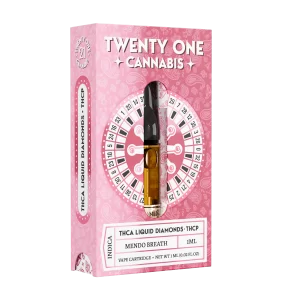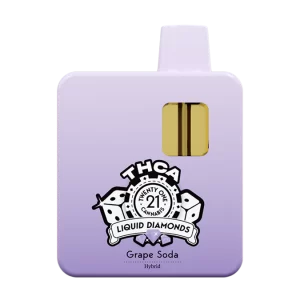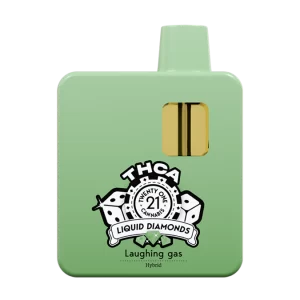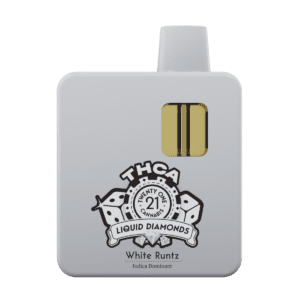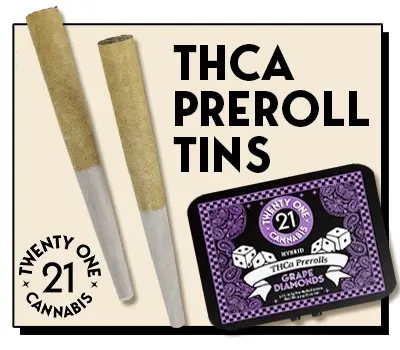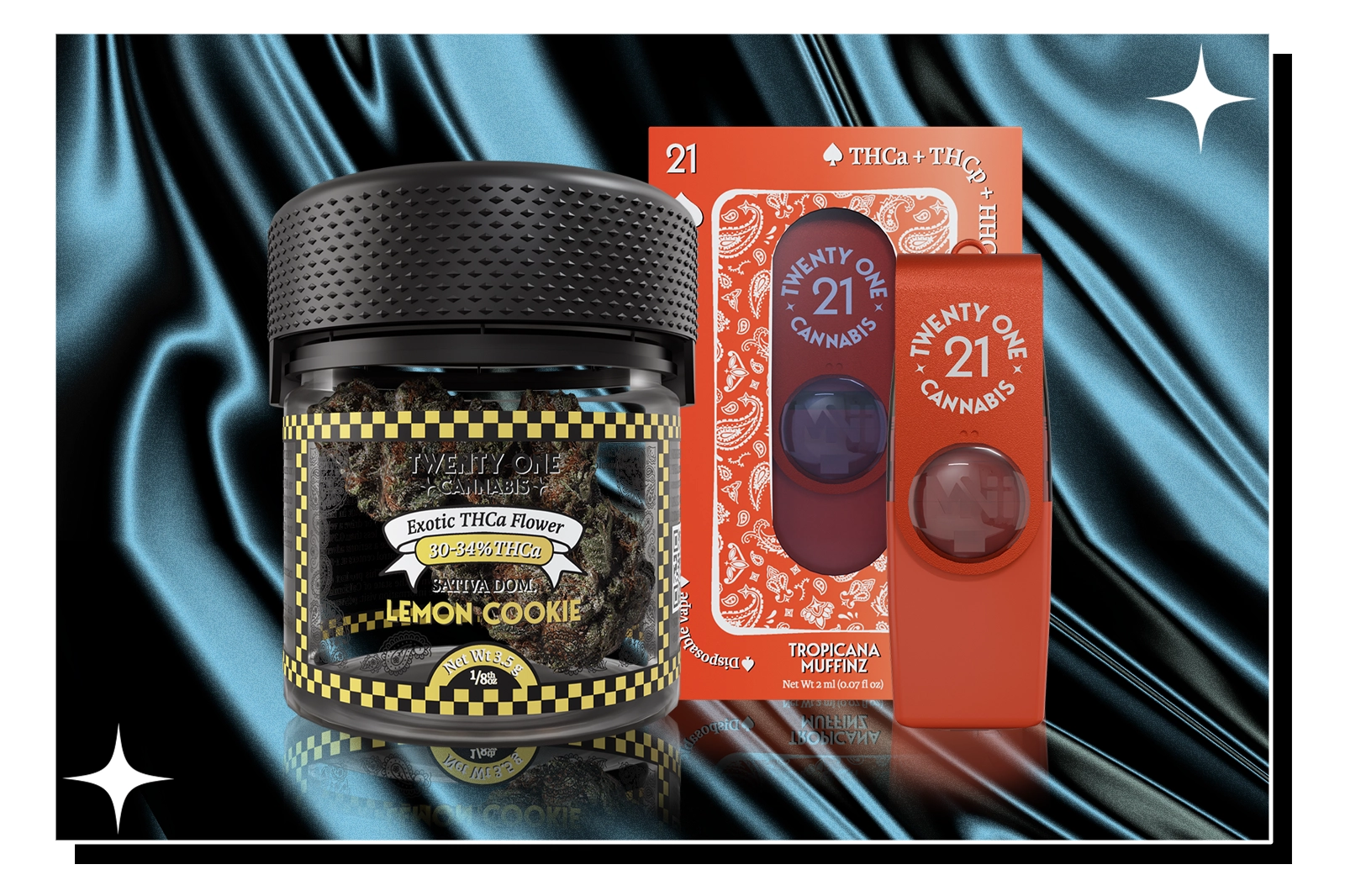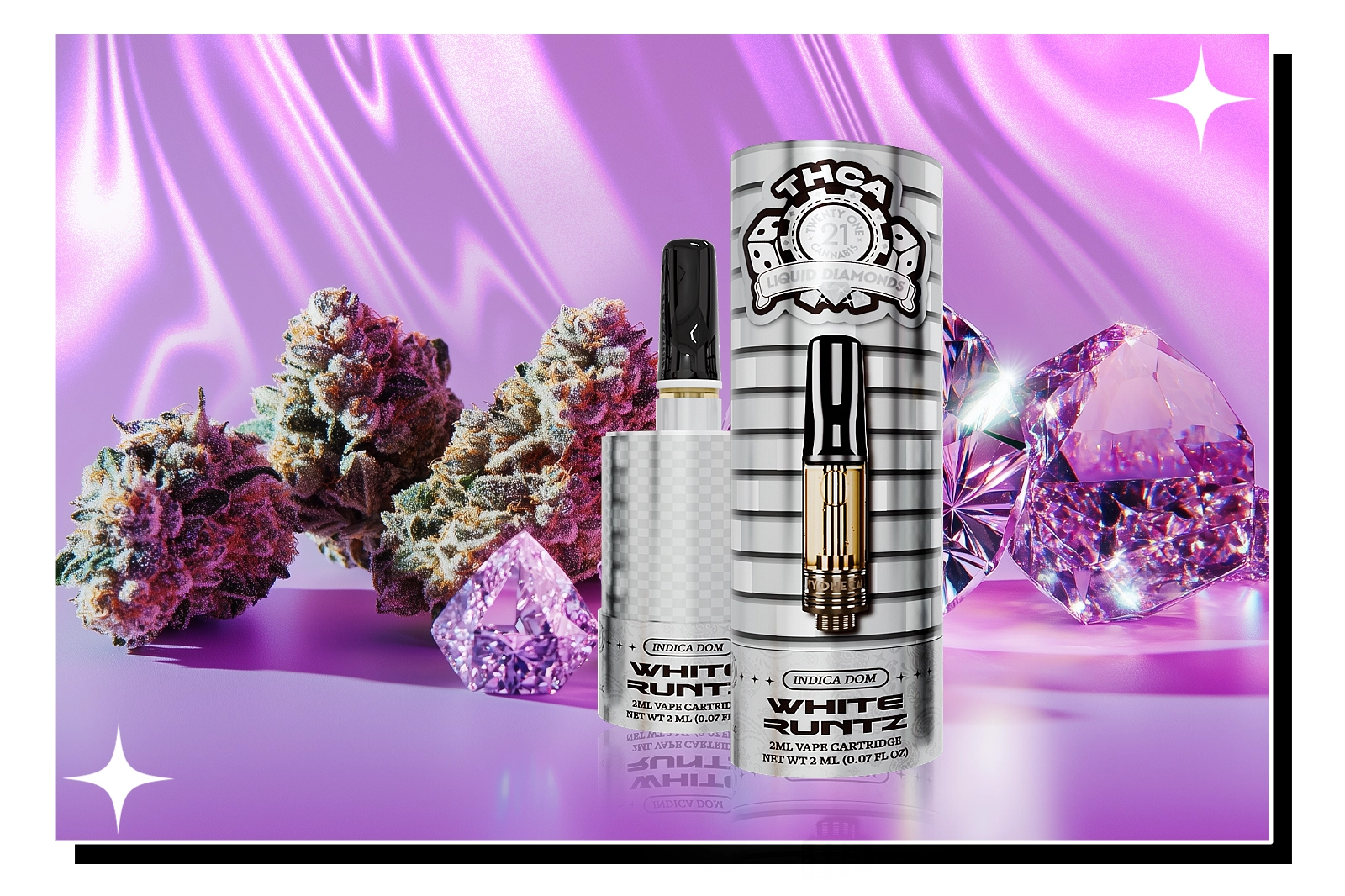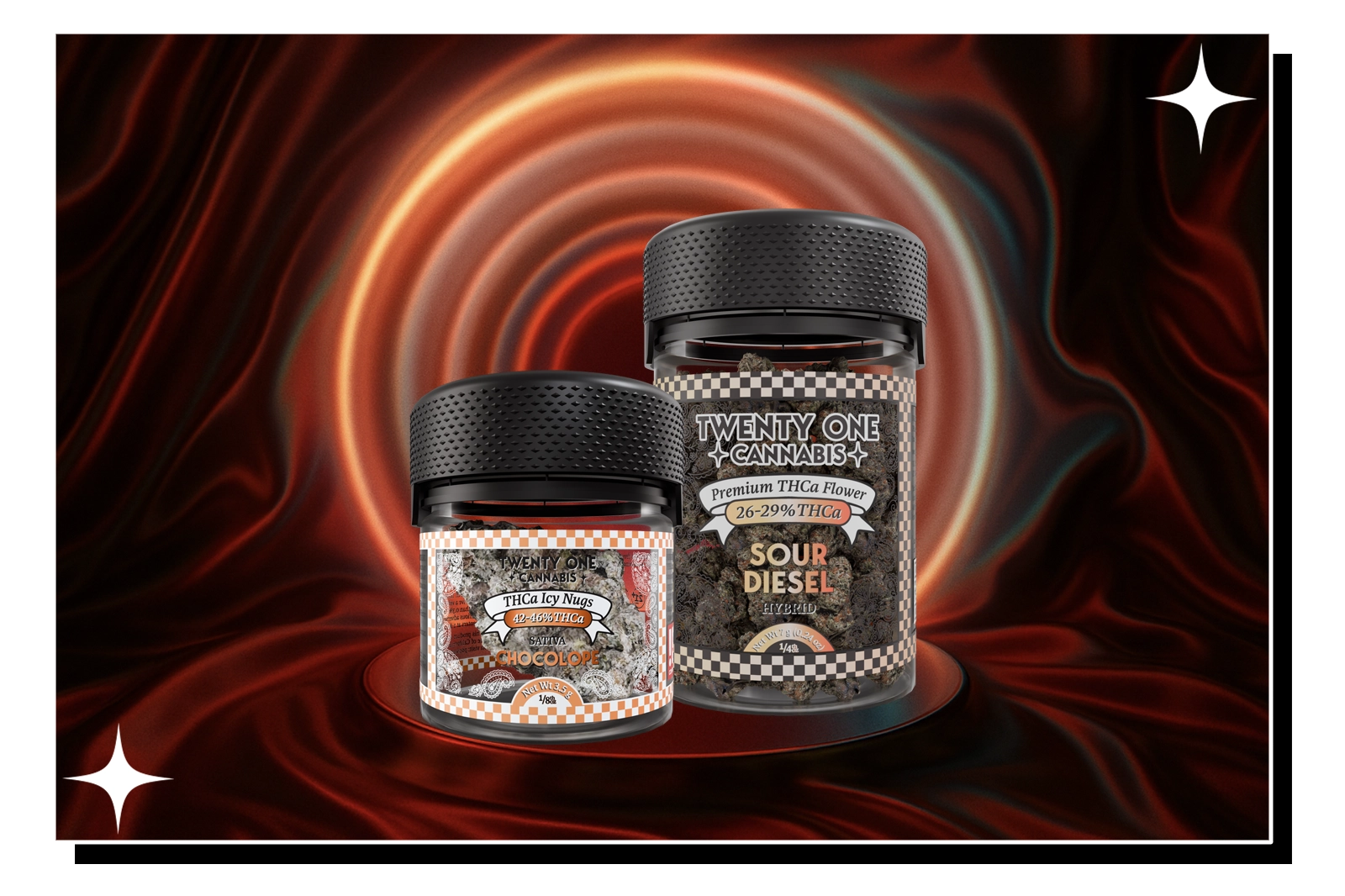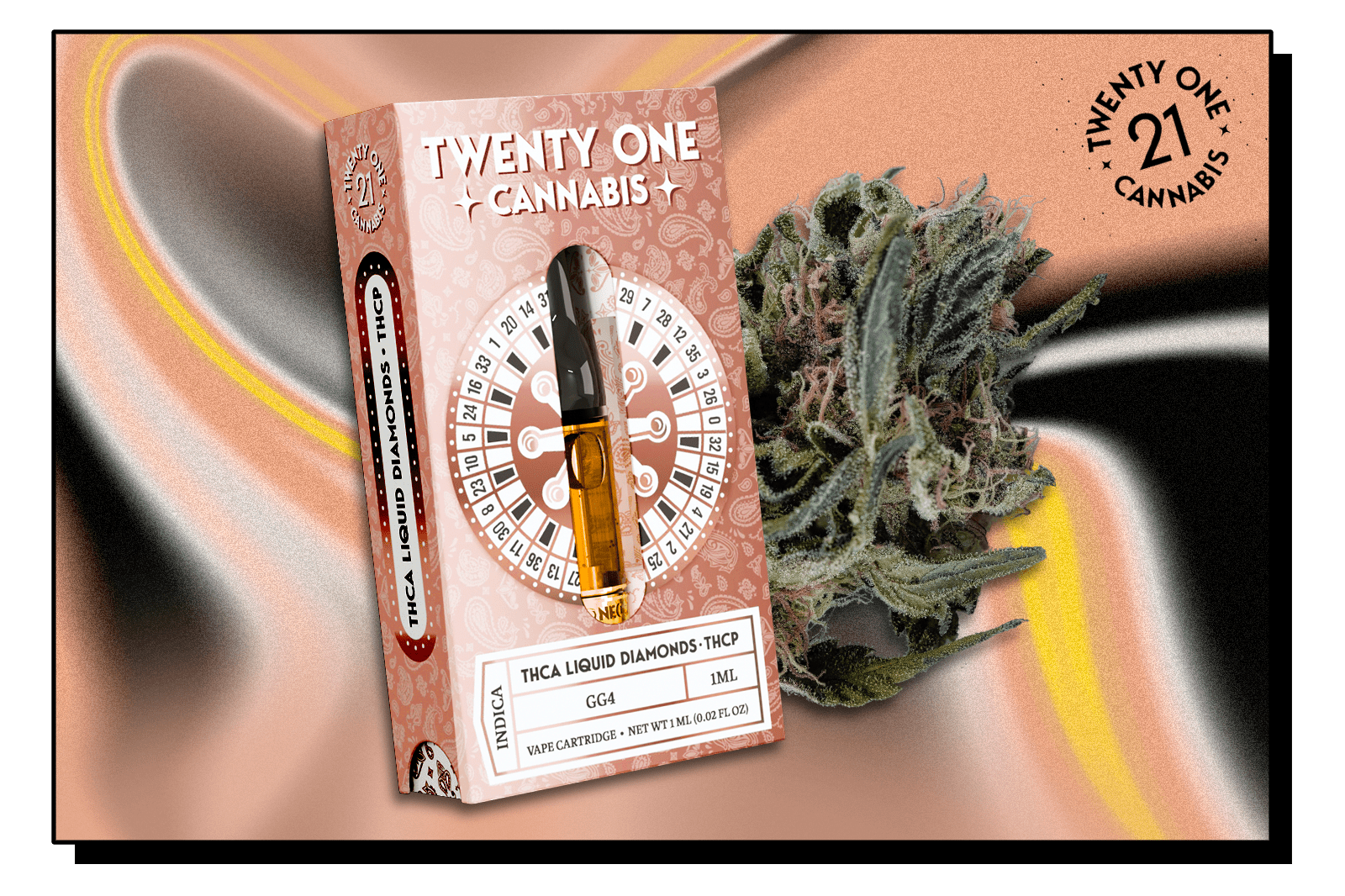
THCa vs THCv: The Full Cannabinoid Comparison
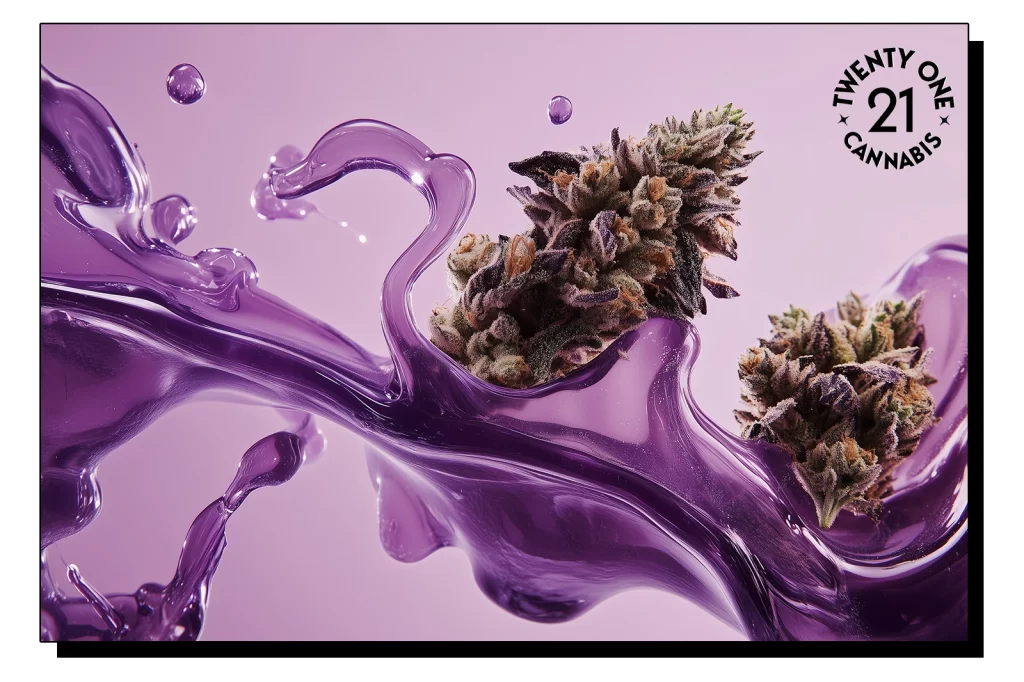
In this Article
The High Rollers Source for THCa Delta 8 HHC
As cannabis consumers, it’s simple to know your run-of-the-mill cannabis products like CBD and THC. However, there are a bunch of other cannabinoids in the market as well. It’s very easy to feel overwhelmed by the array of cannabinoids out there, each with unique effects and potential benefits.
Among the many cannabinoids gaining attention are THCa (tetrahydrocannabinolic acid) and THCv (tetrahydrocannabivarin). While both share a connection to THC, the well-known psychoactive compound, they offer distinctly different properties, uses, and impacts. Understanding these differences is crucial for cannabis enthusiasts looking to tailor their experiences or therapeutic outcomes.
In this article, we’ll briefly go over the key distinctions between THCa and THCv, shedding light on how they work and what makes each one unique in the cannabis spectrum.
Key Takeaways
- THCa is a non-psychoactive cannabinoid that converts to THC when heated, offering potential anti-inflammatory and neuroprotective benefits.
- THCv provides unique benefits like appetite suppression, mild psychoactive effects, and potential support for blood sugar regulation and bone health.
- THCa is best consumed raw for non-psychoactive benefits or heated for a traditional cannabis experience, making it versatile for wellness or recreation.
- THCv is ideal for targeted effects like energy boosts and appetite control, commonly consumed through vaping, edibles, or tinctures.
- THCa offers broader therapeutic versatility, while THCv focuses on metabolic and mild psychoactive benefits, catering to different wellness goals.
- For overall wellness, THCa’s affordability, accessibility, and therapeutic flexibility make it an excellent choice for most users.
- Twenty One Cannabis provides premium, lab-tested THCa products designed to support your lifestyle with quality and safety assurance.
What is THCa?
THCa, or tetrahydrocannabinolic acid, is the raw, non-psychoactive precursor to THC found in fresh cannabis plants. Unlike Delta-9, THCa doesn’t produce a “high” in its natural state. This is because THCa has a different molecular structure that prevents it from binding effectively to the body’s cannabinoid receptors.
When cannabis is heated through smoking, vaping, or cooking, THCa undergoes a process called decarboxylation. This process removes a carboxyl group from the THCa molecule, converting it into THC. Only then does it become psychoactive and capable of producing the euphoric effects associated with cannabis use.
THCa research suggests that this compound may have potential therapeutic properties, even in its non-psychoactive form. Some studies indicate that THCa might have anti-inflammatory and neuroprotective effects, making it an interesting subject for medical research.
Potential Benefits of THCa
THCa offers several potential benefits that have caught the attention of researchers and cannabis enthusiasts alike. While more studies are needed to fully understand its effects, early research shows promising results in various areas.
Anti-Inflammatory Properties
THCa may help reduce inflammation in the body. Research suggests that THCa interacts with the endocannabinoid system to modulate inflammatory responses. This property could make THCa useful for managing conditions like arthritis, inflammatory bowel disease, and other inflammatory disorders.
You might find relief from chronic pain and swelling by incorporating THCa into your wellness routine.
Neuroprotective Effects
THCa shows potential in protecting brain cells from damage and degeneration. Studies indicates that THCa may help preserve neuronal function and promote brain health. This neuroprotective quality could be beneficial for those at risk of neurodegenerative diseases.
Regular consumption of THCa might support cognitive function and potentially slow the progression of age-related mental decline. However, it’s important to note that research in this area is still ongoing, and more clinical trials are needed to confirm these effects.
Antioxidant Qualities
THCa possesses strong antioxidant properties, which help combat oxidative stress in the body. Oxidative stress contributes to various health issues, including premature aging and chronic diseases. By incorporating THCa into your diet, you may boost your body’s natural defense against free radicals.
These antioxidant qualities also support overall cellular health, potentially reducing the risk of certain types of cancer and other oxidative stress-related conditions. Some users report feeling more energized and experiencing improved skin health after regular THCa use.
What is THCv?
THCv, or tetrahydrocannabivarin, is a naturally occurring cannabinoid found in cannabis and hemp plants. Structurally similar to THC (tetrahydrocannabinol), THCv has distinct effects that set it apart. Unlike THC, which is known for its psychoactive properties, THCv typically produces milder or no intoxicating effects when consumed in small amounts.
However, at higher doses, THCv may exhibit psychoactive effects, though they are often described as shorter-lasting and more clear-headed than THC.
What truly makes THCv unique is its potential appetite-suppressing properties, earning it the nickname “diet weed.” Studies suggest THCv may help reduce hunger, making it appealing for those managing weight or seeking appetite regulation. Additionally, research has explored its possible therapeutic benefits, including aiding in blood sugar regulation and promoting mental clarity.
THCv is often found in smaller concentrations in cannabis strains, especially African landraces, and is becoming more popular in targeted formulations for its unique properties.
Potential Benefits of THCv
THCv offers a range of potential benefits that set it apart from other cannabinoids. Remember that just like THCa, there still needs to be a lot of research done before the benefits below can be backed up by actual studies.
Appetite Suppression
Unlike THC, which often increases appetite, THCv may help suppress hunger. This effect has earned THCv the nickname “diet weed” among cannabis enthusiasts. You might find THCv useful for weight management or controlling cravings. Some users report feeling less hungry throughout the day when consuming THCv products regularly.
Blood Sugar Regulation
THCv may help regulate blood sugar levels. This property makes THCv particularly interesting for individuals managing diabetes or at risk of developing the condition. THCv appears to improve insulin sensitivity and reduce glucose intolerance, potentially offering a natural approach to blood sugar control.
Bone Growth Stimulation
THCv shows promise in promoting bone growth and health. Research indicates that this cannabinoid may stimulate bone formation and help prevent bone loss. You might benefit from THCv if you’re concerned about osteoporosis or looking to support overall bone health.
Anxiety Reduction
Many users report feeling calmer and more focused after consuming THCv. This cannabinoid appears to have anxiolytic properties, potentially helping reduce anxiety without the sedative effects often associated with THC. You might find THCv helpful for managing stress and promoting a sense of calm focus throughout your day.
How Do THCa and THCv Differ?
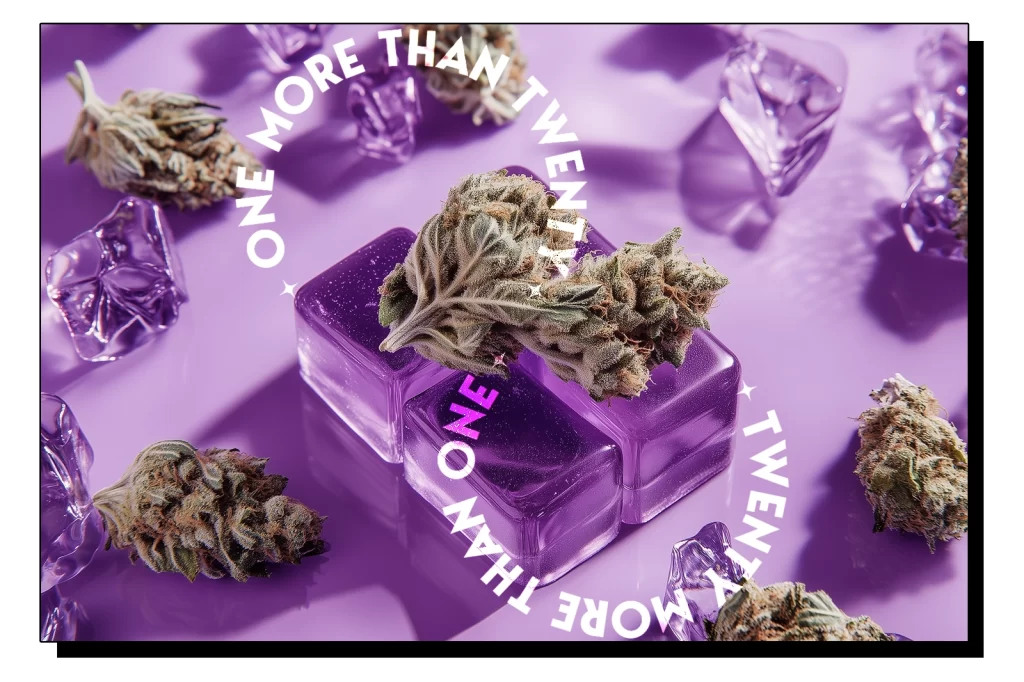
THCa and THCv have distinct characteristics that set them apart, despite both being cannabinoids found in cannabis plants. Understanding these differences helps you choose the right product for your needs.
Chemical Structure
The molecular structures of THCa and THCv play a significant role in their effects on the body. THCa has a carboxyl group attached to its molecule, which is responsible for its non-psychoactive nature. This carboxyl group is removed when THCa is heated, transforming it into THC.
THCv, on the other hand, has a propyl side chain instead of the pentyl chain found in THC. This slight difference in structure contributes to THCv’s unique properties. THCa vs THCp explores how these structural variations affect the potency and effects of different cannabinoids.
Psychoactive Effects
One of the most notable differences between THCa and THCv lies in their psychoactive properties. THCa remains non-psychoactive until it’s exposed to heat, which converts it to THC. This means you can consume raw cannabis or THCa products without experiencing a “high.”
THCv, however, is mildly psychoactive, even without heating. At lower doses, THCv may actually counteract some of THC’s psychoactive effects. At higher doses, it can produce a clear-headed, energetic high that’s shorter in duration compared to THC.
Potential Benefits
THCa and THCv offer different potential benefits due to their unique interactions with the body’s endocannabinoid system.
THCa shows promise for its anti-inflammatory and neuroprotective properties. Some studies suggest it may help with conditions like arthritis and neurodegenerative diseases. However, more research is needed to fully understand its therapeutic potential.
THCv has garnered attention for its potential metabolic benefits. It may help suppress appetite and regulate blood sugar levels, making it interesting for weight management and diabetes research. Some studies also indicate THCv might have anti-anxiety properties.
How to Consume THCa
THCa offers unique benefits when consumed in its raw form. You can explore various methods to incorporate this non-psychoactive cannabinoid into your wellness routine.
For cannabis enthusiasts and newcomers alike, understanding the best methods to consume THCa is essential to unlocking its potential benefits. THCa, the non-psychoactive precursor to THC, can be consumed in various ways depending on the effects or experiences you’re seeking. Here’s a breakdown of the most common methods:
Smoking
Smoking remains one of the most popular ways to consume THCa. While raw THCa itself is non-intoxicating, the act of smoking THCa flower—whether through a joint, pipe, or bong—applies heat, converting THCa into THC through a process called decarboxylation. This creates the psychoactive effects cannabis is well-known for. Smoking THCa-rich flower offers a fast onset of effects, making it ideal for those seeking quick relief or recreational enjoyment.
If you’re looking for THCa flower to smoke, we have a few amazing options for you. The Dream Wedding THCa Flower is a premium cannabis strain celebrated for its balanced effects and flavorful profile. Combining sweet and earthy notes, this flower offers an indulgent experience for those seeking a smooth and potent high.
Whether you’re looking to unwind after a long day or enhance your focus for creative tasks, Dream Wedding delivers a versatile experience. Each bud is meticulously cultivated to preserve its rich cannabinoid and terpene content, ensuring quality and consistency. Its elegant aroma and robust potency make it a perfect choice for connoisseurs and newcomers alike, providing a relaxing yet uplifting vibe.
The Apple Fritter THCa Flower brings a unique fusion of flavor and effects, offering a delightful apple-like aroma with subtle sweet undertones. This strain is known for its balanced high, combining a calming body relaxation with a light cerebral buzz that enhances mood and focus.
Perfect for both recreational and therapeutic use, Apple Fritter is versatile enough for daytime or evening enjoyment. Its premium-quality buds are cultivated to highlight their rich cannabinoid profile, delivering a smooth smoking or vaping experience. For those seeking a flavorful, all-around strain, Apple Fritter provides satisfaction in every inhale.
Vaping
Vaping THCa concentrates, such as THCa diamonds or cartridges, is another efficient method. Vaping also decarboxylates THCa, producing THC for a smooth, inhalable experience. This method typically provides a more controlled and flavorful experience compared to smoking, with fewer harsh effects on the throat and lungs.
Need something discreet to vape? The Berry Pie THCa Disposable Vape is a perfect choice for those seeking an energizing and uplifting sativa experience. With a euphoric head high balanced by subtle body relaxation, this vape keeps you focused and light on your feet. Its compact disposable design ensures convenience and portability, while the sweet, rich berry flavor enhances the overall session. Ideal for daytime use, Berry Pie helps you stay sharp and motivated.
For a fruitier experience, the Strawberry Fields THCa Diamonds Disposable Vape offers a smooth and potent way to indulge in a rich strawberry flavor profile. Infused with THCa diamonds, it delivers a balanced effect that is both relaxing and mood-enhancing. Perfect for users seeking an easy-to-use option, the disposable vape ensures a flavorful and consistent session, making it a standout choice for any time of the day.
The Oreoz THCa Diamonds Vape Cartridge brings a dessert-like vaping experience with its sweet, cookie-inspired flavor, complemented by subtle earthy undertones. Designed for those who appreciate complexity, this cartridge delivers powerful euphoric and relaxing effects. Its THCa liquid diamonds formulation ensures a clean, potent session with every puff, making Oreoz a premium option for unwinding while savoring a unique flavor profile.
Raw Consumption
For non-intoxicating benefits, THCa can be consumed in its raw form. Adding raw cannabis leaves or THCa-rich concentrates to smoothies, salads, or juices allows users to take advantage of its potential anti-inflammatory, neuroprotective, and anti-nausea properties without the psychoactive effects.
Dabbing
Dabbing involves heating a concentrate, such as THCa diamonds, on a heated surface and inhaling the vapor. It’s a potent method for users seeking stronger effects and immediate relief.
How to Use THCv
THCv offers unique benefits and effects, and you can consume it in various ways to suit your preferences and lifestyle. Here are some popular methods for using THCv:
Vaping THCv Cartridges
Vaping THCv cartridges provides a fast-acting and efficient way to experience its effects. You’ll find pre-filled cartridges containing THCv-rich oil that attach to a standard vape battery. This method allows for precise dosing and quick onset of effects, typically within minutes.
When choosing a THCv vape cartridge, look for products from reputable manufacturers that provide third-party lab testing results. If vape cartridges are a little too much for you, disposable THCv vapes are still an option.
The Blue Dream Disposable Vape captures the essence of the iconic strain while delivering a dynamic cannabinoid profile for a well-rounded experience. This isn’t just a THCv product—it’s a carefully balanced blend of cannabinoids, each contributing to the unique effects. The presence of THCv provides a sharp and uplifting edge, while other cannabinoids, like Delta-8 and THCa, complement the profile with relaxing and soothing undertones.
The result is a smooth, flavorful vape with the hallmark Blue Dream sweetness and subtle berry notes. Its 4ml capacity ensures extended use, and the convenient disposable design makes it easy to enjoy anywhere. Perfect for users seeking a versatile, balanced high, this vape delivers a thoughtfully crafted experience with THCv as the finishing touch that ties everything together beautifully.
Ingesting THCv Edibles
THCv edibles offer a discreet and long-lasting way to consume this cannabinoid. You’ll find THCv-infused gummies, chocolates, and other treats that provide a pre-measured dose. The effects of THCv edibles typically take longer to onset compared to vaping, usually 30 minutes to 2 hours, but can last for several hours.
Start with a low dose and wait at least two hours before consuming more to gauge your tolerance. The THCv cannabinoid research provides insights into the potential benefits and effects of THCv consumption.
Sublingual THCv Tinctures
THCv tinctures offer a versatile consumption method. You place a few drops under your tongue and hold for 30-60 seconds before swallowing. This allows for faster absorption through the sublingual blood vessels, providing quicker effects than edibles but not as rapid as vaping.
Is THCv Better Than THCa for Weight Loss?
When it comes to weight loss, THCv often takes the spotlight due to its unique appetite-suppressing properties. Known as the “diet weed,” THCv has been shown to reduce hunger and promote feelings of fullness, making it a preferred choice for those focusing on weight management. Its potential to influence metabolism and energy regulation further enhances its appeal to individuals aiming to maintain a healthy lifestyle.
However, while THCv may be more targeted for weight loss, THCa should not be overlooked. THCa, the raw, non-intoxicating precursor to THC, offers its own set of potential benefits, including anti-inflammatory and neuroprotective properties.
These can support overall wellness, which is a crucial part of any weight management journey. Furthermore, products containing THCa often deliver a broader range of cannabinoids that can contribute to a balanced, full-spectrum experience.
For those exploring cannabinoid-based options for weight loss, THCv may provide more direct effects, but incorporating THCa into your routine could offer complementary benefits that enhance your overall health. With a variety of high-quality THCa products available, along with our thoughtfully crafted THCv option, we provide solutions to fit different wellness needs, helping you find what works best for your body and goals.
Choosing between THCa and THCv
When selecting between THCa and THCv, it’s essential to evaluate your specific needs and preferences, as these cannabinoids cater to different wellness goals. Here is a deeper dive into the key factors that can help you decide which is better suited for you—and when THCa might take the lead.
1. Psychoactivity and Everyday Usability
THCa is inherently non-intoxicating in its raw form, making it an excellent choice for users seeking therapeutic benefits without the high associated with THC. You can consume THCa through raw methods like smoothies, capsules, or salads, enjoying its benefits while staying clear-headed.
While THCv is also non-intoxicating in small doses, it can produce mild psychoactive effects at higher concentrations. This makes THCv slightly less predictable for users aiming to maintain full clarity. For individuals prioritizing usability without psychoactive interference, THCa is the winner.
2. Weight Management and Appetite Control
THCv has gained attention as the “diet weed” due to its appetite-suppressing properties, potentially aiding those seeking weight loss. In contrast, THCa does not directly impact appetite but can contribute to an overall sense of wellness by reducing inflammation and improving recovery.
These benefits can complement weight management efforts, albeit indirectly. In this specific niche, THCv wins for its targeted effects on appetite.
3. Therapeutic Versatility
THCa stands out for its versatility. It can be consumed raw for anti-inflammatory, neuroprotective, or nausea-reducing effects, or it can be heated to convert into THC for a more traditional cannabis experience.
This dual functionality allows THCa products to appeal to both therapeutic users and recreational enthusiasts. THCv, while offering unique benefits such as energy enhancement and appetite suppression, lacks the same degree of flexibility. For those seeking diverse applications, THCa is the clear winner.
4. Broad Availability and Product Options
THCa is widely available in a range of products, from flower to concentrates to edibles, making it easier for users to find options tailored to their preferences. THCv, on the other hand, is still a niche cannabinoid with limited product availability, often in combination with other cannabinoids. For ease of access and variety, THCa comes out on top.
5. Price and Affordability
Cost is a major consideration when choosing between these two cannabinoids. THCa products are generally more affordable due to their wider availability and ease of production, with options to suit different budgets. THCv, being rarer and more difficult to isolate, is typically more expensive, especially in products designed to highlight its unique benefits. For those seeking cost-effective cannabinoid solutions, THCa is the clear winner.
Closing Thoughts – Why THCa Should Be On Your Grocery List
THCa is far more than just a precursor to THC—it’s a powerhouse cannabinoid with a wealth of potential benefits. From its non-intoxicating therapeutic properties to its versatility in raw or activated forms, THCa fits seamlessly into a balanced lifestyle.
Whether you’re looking to reduce inflammation, support overall wellness, or explore the possibilities of a cannabis product that can adapt to your needs, THCa offers a solution worth considering. Its broad availability and affordability further enhance its appeal, making it accessible to anyone eager to unlock its potential.
Adding THCa-rich products to your routine is an easy way to incorporate the benefits of cannabis without compromising your daily clarity or focus. It’s the cannabinoid that checks all the boxes—versatile, effective, and widely available.
If you’re looking for high-quality THCa products, Twenty One Cannabis is just where to find them! We’re dedicated to offering premium, lab-tested cannabis products sourced from U.S.-grown hemp, ensuring safety, consistency, and satisfaction. Whether you’re new to cannabis or a seasoned enthusiast, our diverse range of THCa options—from flower to vapes—has something for everyone.
Visit Twenty One Cannabis today and find out why THCa belongs in your wellness toolkit.
Frequenty Asked Questions: THCa vs THCv
Does THCv Help You Lose Weight?
THCv is often referred to as the “diet weed” because it may help suppress appetite and promote feelings of fullness, making it potentially useful for weight management. Some studies suggest that THCv can influence metabolism and energy regulation, adding to its appeal for weight loss. However, it’s important to pair THCv use with a healthy lifestyle, as its effects vary among individuals. While it’s definitely not a ‘weight loss hack’, THCv can complement weight-loss efforts in the right context.
How Often Should I Take THCv?
The frequency of THCv use depends on your goals and tolerance. If using THCv for appetite suppression or energy regulation, it may be taken daily in small doses. For recreational or occasional therapeutic use, it can be taken less frequently as needed. Start with a low dose to gauge its effects, as THCv can be mildly psychoactive at higher doses. Consult with a professional for personalized guidance tailored to your needs.
Does THCv Help With Anxiety?
THCv is not typically associated with anxiety relief and may even cause heightened alertness, which can exacerbate anxiety in some users. Cannabinoids like CBD or THCa are better options for managing anxiety due to their calming and non-intoxicating properties. While THCv has unique benefits, anxiety relief is not one of its primary uses. It’s essential to choose cannabinoids that align with your specific needs for the best results.
Does THCa Get You High?
In its raw form, THCa does not get you high because it is non-psychoactive. However, when heated—through smoking, vaping, or cooking—it converts into THC, the psychoactive compound responsible for the cannabis high.
This versatility allows users to enjoy THCa’s therapeutic benefits raw or as an activated, psychoactive experience, making it a flexible option for both medicinal and recreational use.
What Is the Best Way to Use THCa?
The best way to use THCa depends on your goals. For therapeutic benefits without intoxication, consume it raw through smoothies, capsules, or tinctures. If you’re seeking a traditional cannabis experience, use methods like smoking or vaping, which heat THCa to convert it into THC. Its versatility makes it suitable for various methods, ensuring you can tailor your THCa use to fit your lifestyle and desired effects.
Is THCa Better Than CBD?
Whether THCa is better than CBD depends on your needs. THCa offers anti-inflammatory, neuroprotective, and nausea-relieving properties, while CBD is renowned for its anxiety relief and anti-epileptic effects. If you’re seeking non-intoxicating options for inflammation or overall wellness, THCa may be more suitable. For anxiety or neurological disorders, CBD is often the preferred choice. Both cannabinoids are valuable, and the right one depends on your specific health goals.
Studies Used for this Article
- sciencedirect.com/topics/pharmacology-toxicology-and-pharmaceutical-science/tetrahydrocannabinolic-acid
- ncbi.nlm.nih.gov/pmc/articles/PMC5510775/
- sciencedirect.com/science/article/abs/pii/S0006295219303922
- jpet.aspetjournals.org/content/385/S3/551
- sciencedirect.com/science/article/pii/S0367326X21000903
- sciencedirect.com/topics/neuroscience/tetrahydrocannabivarin
- healthline.com/health/substance-use/thcv
- diabetes.co.uk/recreational-drugs/cannabis.html
- pmc.ncbi.nlm.nih.gov/articles/PMC3499879/
- mdpi.com/1422-0067/24/8/7120
- forbes.com/sites/emilyearlenbaugh/2024/05/15/new-study-finds-weight-loss-with-thcv–cbd
In this Article
Let's be social
More Heavy Hitting Posts
JOIN THE HIGH ROLLERS
Categories

Lindsey Goldstein

Peer Review by: JJ Coombs
Doctor of Pharmacy, Pharmaceutical Sciences University of Colorado
Co-Founder & CEO at Arvida Labs



